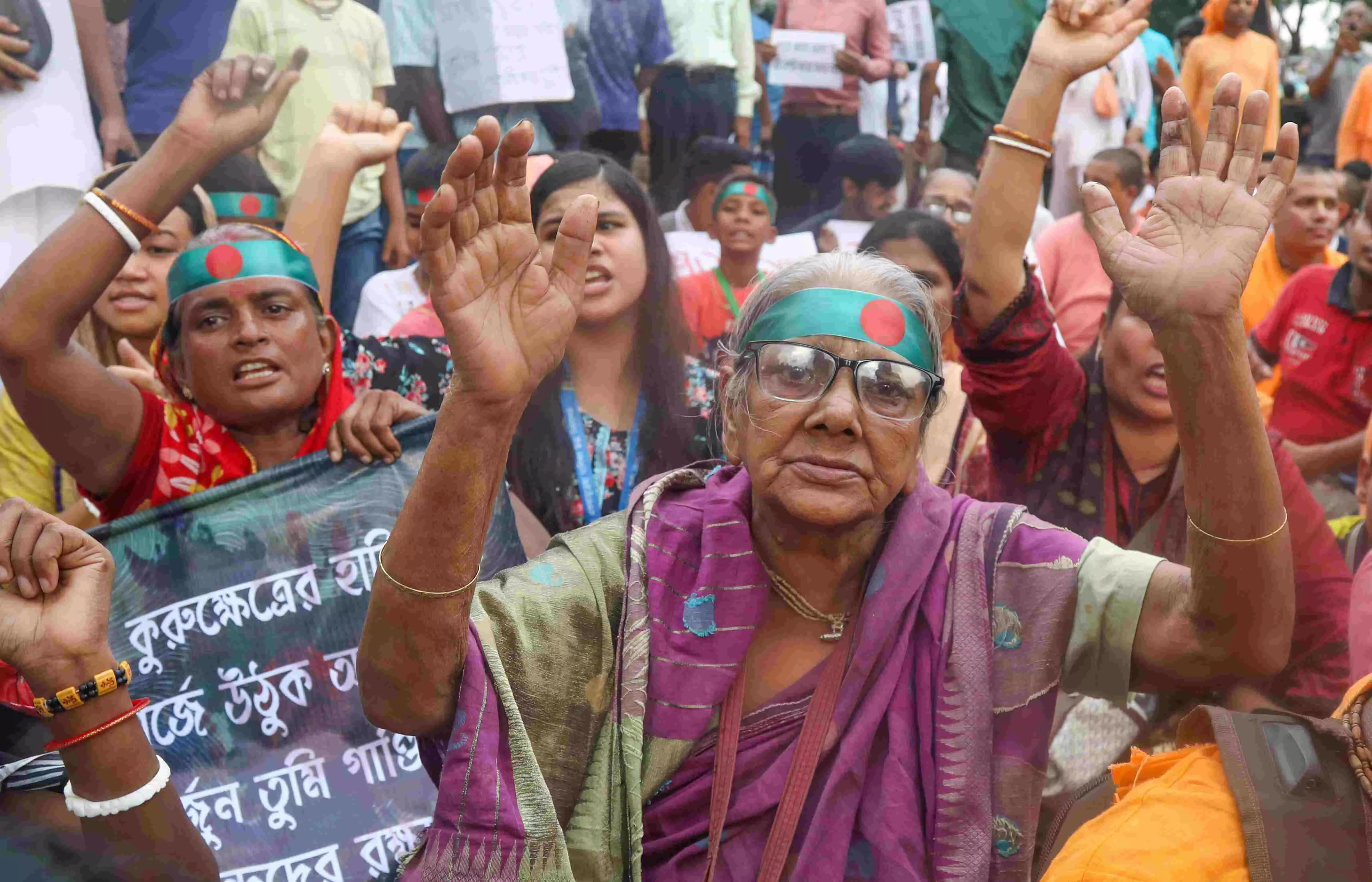Diplomatic crossroads
India must recalibrate its policy in the wake of strategically cultivated rise in anti-India sentiments in Bangladesh and resultant attacks on Hindus, securing the interests of both the nations

Bangladesh has been smouldering for the last three weeks, culminating in the disturbing developments that led to Prime Minister Sheikh Hasina’s unceremonious ouster and eventual escape to India, amid reports of her possible rehabilitation in another country.
The developments leading to such an unfortunate pass, marked by large-scale destruction and significant loss of life, are perhaps unprecedented in the history of Bangladesh. Not even during Pakistan's rule was such mindless violence witnessed. The most disturbing development has been the relentless attacks on the Hindu minority, including desecration of temples, killings, arson, and the blatant usurpation of their property. We don't know if a section of the law enforcement agencies is complicit in these atrocities against the Hindu minority. At the time of writing this opinion piece, the excesses against the Hindus are at their worst. One can only hope that the Army will intervene to stop this. Now that Muhammad Yunus, the Nobel Laureate, is expected to take the helm of the Bangladesh government, his priority should be to rein in the vandals and communal forces that are so notoriously active in the country.
Another disturbing aspect of the ongoing situation is the release of criminals from jails, many of whom were incarcerated for heinous hate crimes. The indications are similar to what the Taliban did after its takeover in Afghanistan. This must be stopped at any cost. Who are the forces guiding the current Bangladesh leadership to free these undesirables? With the Army in command, this should be put to an immediate end. The law and order situation in Bangladesh has gone to the dogs, to say the least.
Sadly, the footage of vandalism seen during the capture of the Gono Bhavan and other locations is reminiscent of the Islamic State of Iraq and Syria (ISIS) on the rampage during the advent of Al-Baghdadi in 2010. ISIS flags are openly displayed. The way statues of Sheikh Mujibur Rahman have been battered, and his house and museums destroyed, shows that the perpetrators are having a field day with no leash over them. The Army must act now. The current Army Chief, known to be a balanced professional and related to Hasina, needs to take decisive action. Is he so faint-hearted that he is not doing anything? Who is the invisible power controlling him? The Army must at least make a show of strength to stop the mayhem.
Crucially, Pakistan’s role in the whole situation gripping Bangladesh merits close examination. The Inter-Services Intelligence (ISI) has notoriously been working for a long time to wean away the Hasina-led government in Bangladesh from India. It has appropriated the Jamaat-e-Islami (JeI), Hefazat-e-Islam (HeI), and other communal elements to its advantage through funding, indoctrination, incitement, and other means to create lawlessness. But how did it succeed in its game plan? Did any other Western power help it achieve its objectives? This is very intriguing. Pakistan and like-minded forces have pushed Bangladesh into a phase of regression. The people of Bangladesh must realise that a peaceful student movement, which began as a simple quota stir, has been effectively hijacked by anti-liberation and regressive forces. All the progress and economic upliftment are being undone. Having said this, one cannot condone Hasina’s autocratic tendencies or complacency. She paid dearly for them. She should have been more alert or seen the straws in the wind. Much of the damage could have been mitigated. Now, the situation appears to be beyond control.
Significantly, anti-India sentiment has taken root, which is very disturbing. An anti-minority mindset is being indoctrinated into the minds of the new generation. It’s time for India to recalibrate its Bangladesh policy. Under Hasina, this country was our staunchest ally, proven and tested. Hasina never allowed Indian insurgents any sanctuary on Bangladeshi soil. From day one, India needs to remind the new Bangladesh government, once it is in place, to adhere to India's security concerns and ensure that no anti-India or anti-Hindu activity occurs in Bangladesh. If such activities are allowed, they have the potential to provoke a significant backlash in India. Bangladesh must understand this well and respond to Indian overtures in equal measure.
On Hasina’s part, her possible error of judgment, lack of political wisdom, or poor advice in handling a monumental crisis like this needs to be studied. Against the backdrop of these developments, security challenges for India are now multiple. Any emerging situation needs to be dealt with deftly and with alacrity. The task is onerous. Whatever the case, it needs to be addressed promptly, lest it shows a tendency to slip out of control. With a stable government in place and our security agencies on high alert, one can expect any nefarious designs to be foiled.
In the foregoing, an important development is the release of Bangladesh Nationalist Party’s (BNP) Khaleda Zia, whose party is now demanding an election in Bangladesh within three months. The BNP is certainly re-energised and now politically charged. One cannot but respect the wishes of the people, but in Indian interests, if the Jamaatis collaborate in the government, which looks likely, there is bound to be a culture shock. We saw statues of Tagore being vandalised. Would the anti-India forces, thinking of Tagore and his national anthem sung in Bangladesh as akin to Hindu culture, do away with them when in power? This needs serious pondering. Similarly, Poila Boisakh, celebrated each year on Bangla New Year, may suffer with the advent of fundamentalist, anti-Indian, and anti-Hindu forces. In sum, Bangla pride and culture may be on the verge of a virtual hijacking by jihadi forces.
The writer is a retired IPS officer, Adviser NatStrat, and a former National Security Advisor in Mauritius. Views expressed are personal



